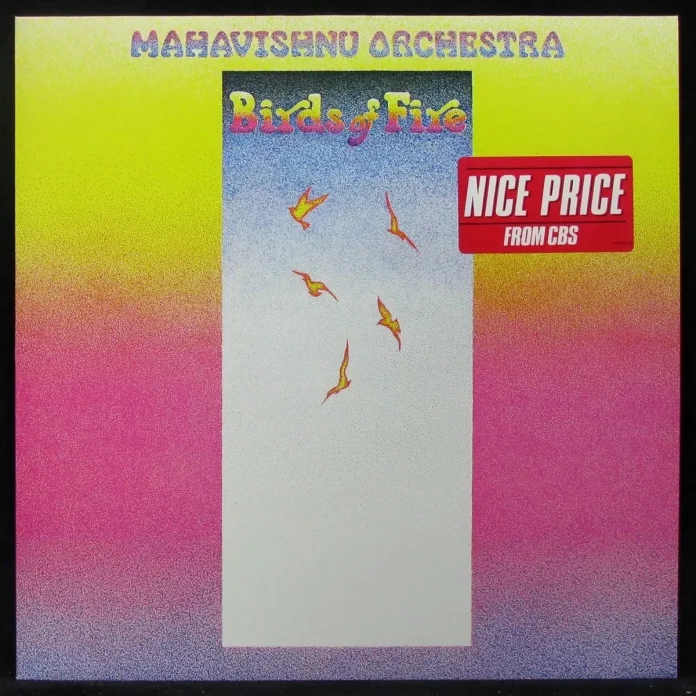While McLaughlin’s playing with the Miles Davis and Tony Williams bands maintained his unique and revolutionary style and role as guitarist, later albums smacked of floundering indecision and a crisis of direction which resulted in music of vastly differing contexts, from messing with Joe Farrell to his partnership with Stu Martin and Karl Berger, from heavy rocking with Buddy Miles to solo acoustic work. After the initial impact of ‘Inner Mounting Flame’, the album remains essentially as a mere showpiece exercise in technical skill and sheer speed of performance.
But the embryo of McLaughlin’s long sought-after format was there, and ‘Birds Of Fire’, while for the most part repeating the same super-rock formula, pursues and emphasises McLaughlin’s spiritual direction in greater depth. The tracks themselves correspond almost exactly in composition and arrangement to those on the previous album, and this immediate familiarity and consciously unsubtle self-parody shows McLaughlin at last getting down to the real nitty-gritty of his current state of mind / point of view / way of life – as well as producing his most successfully personal album since ‘Extrapolation’. ‘Birds Of Fire’ thus evokes a sensation of profound melancholy, a mood of heady mental intensity which has so far eluded the guitarist’s search for the ultimate goal of transposing particular spiritual attitudes into representative musical shape.
Not surprisingly then, few of the tracks have any innovative surprises; faster tracks like Birds Of Fire correspond in composition and layered rhythmic complexities to Meetings Of The Spirit from ‘Inner Mounting Flame’; but most of the manic intensity of the latter has been replaced by an overwhelming darkness of vision and sense of foreboding, anticipated by the solitary bass-cymbal thud that precedes it.
One Word is the main feature: while changes in tempo and mood allow everyone his customary solo, the way in which they do so is extraordinary. Cobham’s inflexibly precise drumming and Laird’s quietly obtrusive meandering leads to a climax of complementary interplay between the three lead instruments which all manage a disturbing sameness of sound. The length of each obsessive exchange diminishes until the chase swallows them up in a suicidal whirlpool; this terse curtailment and prohibited development of each solo is both frustrating and effective at the same time – some sort of discipline is being implied.
The capabilities of the group are as adept and tightly moulded as before, with Hammer rightly given more prominence for his superb piano and especially, Moog-playing, while Cobham’s drumming is again absurdly efficient, demonstrated particularly well, as on ‘Inner Mounting Flame’, on the more relaxed numbers. McLaughlin’s playing doesn’t hit any special high-spots, but then I don’t think that was of any concern to him; rather, he has waived rights to special musical attention in favour of baring his soul, and as such, ‘Birds Of Fire’ serves as a remarkable pointer to what McLaughlin is presently about. The sombre determination and almost threatening self-assurance of Resolution ends an album of a man quite sure of his own destiny and ideology: ‘Above the toil of life my soul / Is a Bird Of Fire winging the Infinite.’
Discography
Birds Of Fire; Miles Beyond; Celestial Terrestial Commuters; Sapphire Bullets Of Pure Love; Thousand Island Park; Hope (19½ min) – One Word; Sanctuary; Open Country Joy; Resolution (20½ min)
John McLaughlin (gtr); Rick Laird (bs-gtr/bs); Billy Cobham (perc): Jerry Goodman (vln); Jan Hammer (el-pno / pno / Moog synthesizer).
(CBS 65321 £2.25)
















